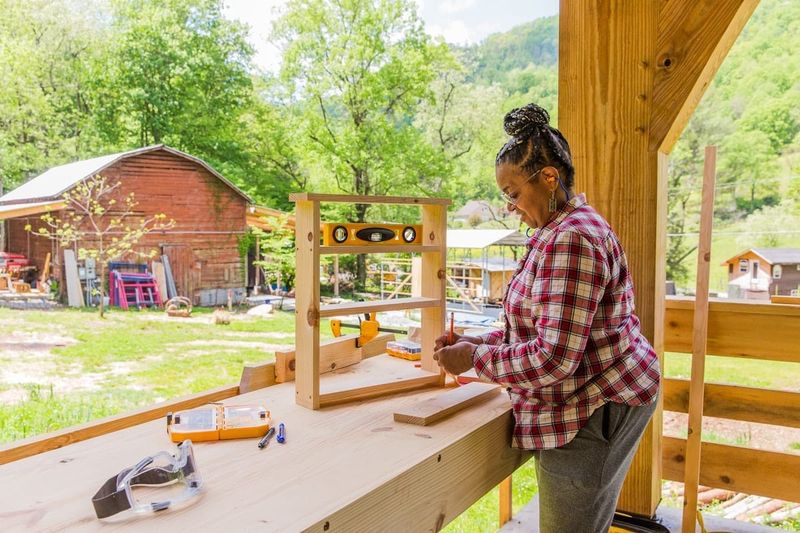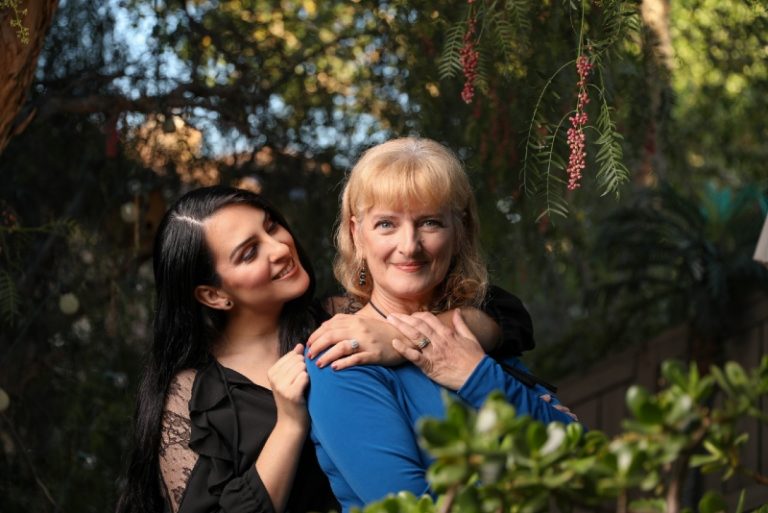Breaking Free From Guilt: 15 Reasons Saying ‘No’ To Your Parents Means They Raised You Right
Saying ‘no’ to your parents can be a daunting task, often laced with feelings of guilt and obligation. However, establishing personal boundaries is a crucial part of growing up and building a healthy adult relationship with them.
This article explores 15 compelling reasons why saying ‘no’ to your parents is not only okay but a reflection of the way they successfully nurtured your independence and respect for personal space.
1. You value your own mental health

Prioritizing mental health is a profound step toward personal growth. It shows you’ve learned to recognize your emotional needs. In doing so, you embrace self-care as a non-negotiable aspect of life. Your parents taught you the importance of looking after yourself.
Creating boundaries preserves your mental energy for things that truly matter. It’s about choosing tranquility over chaos. You’re comfortable in your skin, unafraid to protect your peace. This decision reflects the emotional intelligence your upbringing nurtured.
Saying ‘no’ when necessary demonstrates respect for your mental well-being. It’s a testament to the life skills your parents imparted. They wanted you to thrive, not just survive, and this choice is proof of that success.
2. You respect your parents without enabling them

Respecting your parents doesn’t mean you must agree with everything they say. Healthy relationships involve mutual respect, and sometimes that means saying ‘no.’ You’ve learned to balance love with the ability to stand firm on your own beliefs.
This balance prevents enabling behavior, fostering a more authentic relationship. It celebrates individuality while maintaining respect. By setting boundaries, you show you appreciate their guidance without losing yourself.
Boundaries are a testament to the mature relationship you’ve cultivated. It echoes the healthy dynamics they hoped to instill in you. Their lessons were about nurturing respect, not obedience, and you’ve absorbed them well by finding your voice.
3. You’re building your life, not living theirs

Building your life means paving your own path, separate from your parents’ dreams. It involves making choices that align with your passion, not theirs. Your independence thrives on the foundation they provided, yet it branches into your unique journey.
Living authentically requires courage to deviate from expectations. Setting your course is a tribute to the independence they encouraged. You’re crafting a life filled with personal achievements and discoveries.
In taking control, you honor their desire for you to pursue happiness. The life you lead is a blend of their teachings and your dreams, showcasing a beautiful harmony of past and future aspirations.
4. Healthy boundaries strengthen relationships

Boundaries aren’t barriers; they’re bridges to healthier relationships. By setting boundaries, you’re creating a framework for mutual respect. This fosters trust and understanding, allowing relationships to flourish without resentment.
It’s about drawing lines that protect both parties’ well-being. Your parents taught you the value of limits, enabling you to establish connections based on trust and honesty. These boundaries keep relationships dynamic and fulfilling.
When you say ‘no,’ you’re expressing care for the relationship’s longevity. It’s proof of the respect you have for them and yourself. Healthy relationships are nurtured through clear expectations and mutual respect, which you’ve embraced.
5. You’re not afraid of their disappointment

Facing disappointment without fear shows you’ve grown resilient. You’re aware that pleasing everyone is impossible, and that includes your parents. This courage reflects the confidence they instilled in you.
Disappointment is a natural emotion, but it doesn’t define your worth. You’ve learned to navigate others’ feelings with empathy without sacrificing your principles. This balance is a testament to your emotional maturity.
Your parents taught you to be true to your values, even when it’s tough. Their support wasn’t just about agreement but fostering your ability to stand firm. You’ve absorbed these lessons well by not letting disappointment deter you.
6. Independence was their ultimate goal for you

Moving towards independence is what your parents always envisioned. By saying ‘no,’ you acknowledge their efforts in raising a self-reliant individual. This step symbolizes the transition they hoped for, where you make choices independently.
Independence doesn’t mean isolation but thriving on your own terms. It’s the culmination of the lessons they imparted about responsibility and self-sufficiency. Seeing you stand alone is a testament to their success.
Your decisions reflect the freedom they wished for you. You’re living proof of their guidance, choosing paths they feel proud of. Independence is the ultimate reward of their nurturing, celebrating their vision for your future.
7. You refuse to be controlled by guilt

Guilt can be paralyzing, but you refuse to be shackled by it. Letting go is an act of liberation learned from understanding your worth. It’s a rejection of manipulation, embracing freedom over obligation.
Your parents taught you that love isn’t transactional. They instilled the courage to follow your heart, not guilt. This lesson enables you to prioritize what truly matters without being weighed down.
Choosing freedom over guilt is a tribute to their values. They raised you to cherish authenticity and self-respect, and letting go embodies these principles. It’s a celebration of their legacy in nurturing your independence.
8. Saying no allows you to say yes to what matters

Saying ‘no’ creates space for meaningful ‘yeses.’ It’s about prioritizing what aligns with your values and goals. This skill reflects discernment, clarity gained from your parents’ teachings.
Choices shape your journey, and a well-placed ‘no’ can be empowering. It means you’re making decisions that reflect your authentic desires. This ability to choose wisely is a testament to their guidance.
By establishing your priorities, you honor their influence on your life. Their lessons were about crafting a life filled with purpose, and every ‘no’ is a step towards fulfilling those dreams. It’s about embracing opportunities that resonate with you.
9. You’re teaching future generations self-respect

By setting boundaries, you model self-respect for future generations. You’re teaching them to value their worth and voice. It’s a legacy your parents instilled, now passed down through your actions.
This lesson in self-respect empowers others to follow suit. Children learn from watching, absorbing how you navigate life with dignity. You’re setting a precedent for them to emulate.
In teaching this, you honor the values your parents cherished. Your actions speak volumes about the respect you have for yourself and those around you. It’s a gift that keeps giving, nurturing a cycle of self-respect and empowerment.
10. You trust your instincts over obligation

Trusting instincts over obligation is a powerful life skill. It means you’ve learned to listen to your inner voice, guided by your parents’ wisdom. This trust is about honoring your truth over societal expectations.
Instincts are your compass, directing you towards authenticity. It’s the foundation your parents laid, encouraging self-reliance and confidence. By valuing your instincts, you’re making choices that resonate with who you truly are.
Their lessons were about crafting a life led by genuine desires. Your ability to prioritize instinct reflects their teachings on independence. You’re a testament to their success, living a life led by inner conviction and purpose.
11. They raised you to think critically and choose wisely

Critical thinking is a skill your parents nurtured. It’s about analyzing situations and making informed decisions. This ability to choose wisely reflects their emphasis on education and discernment.
Thinking critically involves questioning norms and seeking truth. It means you’ve learned to weigh options, a testament to their guidance. They wanted you to be informed, not just compliant.
Your decisions today are a product of their investment in your intellect. Their teachings are alive in every choice you make, celebrating their success in raising a thoughtful, independent thinker. It’s a tribute to their dedication to your growth.
12. You see yourself as an equal adult now

Seeing yourself as an equal adult reflects growth and maturity. It means you’ve transitioned from a dependent to an equal partner in the relationship. Your parents’ teachings were about nurturing this transition.
Equality means mutual respect and understanding. Your ability to assert yourself, even when it means saying ‘no,’ speaks to this evolution. It’s about engaging in relationships that recognize your autonomy.
This balance honors the upbringing you received. They prepared you for a life where your voice matters. You’ve become the adult they envisioned, capable of maintaining harmony without losing individuality.
13. People-pleasing no longer defines your worth

Letting go of people-pleasing is liberating. It means you’ve learned to value self-worth over external validation. This realization is a testament to your parents’ teachings.
People-pleasing can be exhausting, but you’ve grown beyond it. You’ve embraced authenticity, recognizing that your worth isn’t tied to others’ approval. This shift reflects the confidence they instilled in you.
By prioritizing personal values, you honor the lessons they imparted. You’re living proof of their success in fostering your independence. It’s about embracing a life where your happiness isn’t contingent on pleasing others.
14. You value authenticity over fake harmony

Authenticity over fake harmony is a bold choice. You’ve learned to embrace your true self, even if it disrupts apparent peace. This decision reflects the courage your parents fostered.
Choosing truth over facade means prioritizing genuine connections. It’s about engaging in relationships that value honesty over pretension. Your parents’ teachings encouraged these authentic interactions.
By valuing authenticity, you honor their legacy of integrity. You’ve become someone who cherishes real harmony, not just the appearance of it. It’s a tribute to their success in raising an individual unafraid of being genuine.
15. Love doesn’t require sacrificing your peace

Love and peace coexist beautifully. Your parents taught you that love shouldn’t come at the cost of personal peace. This understanding is a cornerstone of healthy relationships.
By protecting your peace, you cultivate love that’s fulfilling. It’s about nurturing connections that respect boundaries and individuality. This choice reflects the emotional intelligence your upbringing nurtured.
In preserving your peace, you honor the lessons they imparted. You’ve grown into someone who values harmony without sacrificing self. It’s a reflection of their success in fostering your independence and well-being.







